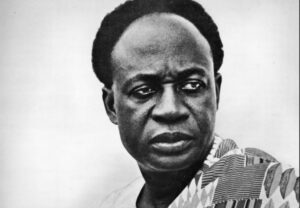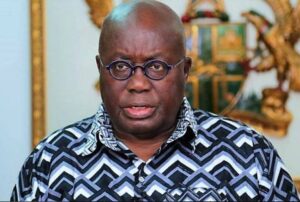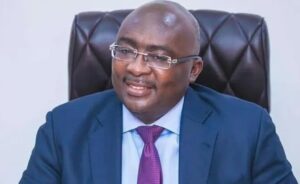Ghana, as a country, has a rich historical and cultural heritage, and the country has had leaders since its independence. This is a comprehensive list of all the presidents of Ghana, their years in office, and a brief overview of their tenures.
READ ALSO: Presidents That Have Ruled Paraguay Till Date
Let’s get to know them.
| No. | President | Tenure |
|---|---|---|
| 1 | Dr. Kwame Nkrumah | 1960 - 1966 |
| 2 | Lt. General Joseph Arthur Ankrah | 1966 - 1969 |
| 3 | Brigadier Akwasi Afrifa | 1969 - 1970 |
| 4 | Edward Akufo-Addo | 1970 - 1972 |
| 5 | Colonel Ignatius Kutu Acheampong | 1972 - 1978 |
| 6 | Lt. General Frederick W.K. Akuffo | 1978 - 1979 |
| 7 | Flight Lieutenant Jerry John Rawlings (First Term) | 1979 |
| 8 | Dr. Hilla Limann | 1979 - 1981 |
| 9 | Flight Lieutenant Jerry John Rawlings (Second Term) | 1981 - 2001 |
| 10 | John Agyekum Kufuor | 2001 - 2009 |
| 11 | John Evans Atta Mills | 2009 - 2012 |
| 12 | John Dramani Mahama | 2012 - 2017 |
| 13 | Nana Addo Dankwa Akufo-Addo | 2017 - Present |
First President of Ghana
Dr. Kwame Nkrumah (1960 – 1966)

Dr. Kwame Nkrumah was the visionary leader who spearheaded Ghana’s independence movement. His presidency was marked by a fervent push for modernization and industrialization.
Under his leadership, Ghana saw the construction of the Akosombo Dam, which provided a significant boost to the country’s electricity supply.
Nkrumah was a strong advocate for African unity, and his influence extended beyond Ghana, impacting the entire continent.
However, his administration faced allegations of corruption and an increasingly autocratic rule, which eventually led to his overthrow in a military coup.
Notable Achievements:
- Led Ghana to independence from British colonial rule in 1957.
- Established numerous infrastructure projects and industries, including the Akosombo Dam.
- Promoted Pan-Africanism and was a key figure in the formation of the Organization of African Unity (OAU).
Downsides:
- His government faced accusations of corruption and authoritarianism.
- Overthrown in a military coup in 1966, leading to political instability.
Current President of Ghana
Nana Addo Dankwa Akufo-Addo (2017 – Present)

Notable Achievements:
- Implemented the Free Senior High School policy, making secondary education accessible to all Ghanaians.
- Launched initiatives to boost the economy, such as the “One District, One Factory” program.
- Strengthened international relations, promoting Ghana on the global stage.
Downsides:
- His tenure has faced challenges with economic management, including rising debt and inflation.
- Criticized for not effectively addressing corruption and unemployment issues.
Current Vice President of Ghana
Dr. Mahamudu Bawumia (2017 – Present)

Notable Achievements:
- Played a key role in digitizing the Ghanaian economy, including the implementation of the Mobile Money Interoperability system.
- Advocated for financial inclusion and economic reforms aimed at stabilizing the currency.
Downsides:
- Faced criticism for some economic policies that have not yielded the expected results.
- Accused of not sufficiently addressing the concerns of the informal sector.
Some Notable Presidents
Jerry John Rawlings (1979 and 1981 – 2001)
Jerry John Rawlings, a charismatic and controversial figure, served as president in two distinct periods. His first brief stint in 1979 followed a military coup, but he handed over power to a civilian government shortly after.
Dissatisfied with the state of the nation, he returned to power through another coup in 1981 and remained in office until 2001.
Rawlings is credited with implementing significant economic reforms that stabilized Ghana’s economy. However, his regime was also marked by human rights abuses and suppression of political opposition.
John Agyekum Kufuor (2001 – 2009)
John Agyekum Kufuor’s presidency is often remembered for economic growth and democratic consolidation. Under his leadership, Ghana experienced steady economic progress, and he introduced several social intervention programs, including the National Health Insurance Scheme.
Kufuor’s tenure is praised for enhancing Ghana’s international standing and improving infrastructure. Despite these achievements, his administration faced criticism for corruption and issues in public service delivery.
